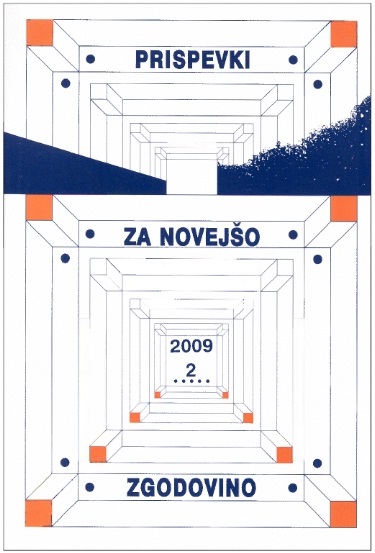"Celotno posojilo Mestne hranilnice ljubljanske je šlo v žepe akcionarjev in po drugih napačnih potih." Mestna hranilnica ljubljanska in propad industrijske delniške družbe Karel Pollak
"The Whole Loan of the Ljubljana City Savings Bank Pocketed by Shareholders and Lost in Other Wrongful Ways."
Author(s): Mitja SunčičSubject(s): Economic history, Economic development, Pre-WW I & WW I (1900 -1919), Financial Markets, Socio-Economic Research
Published by: Inštitut za novejšo zgodovino
Keywords: economy; financial business; savings banks; Ljubljana Savings and Lending Institution; Ljubljana City Savings Bank; crediting of industry; entrepreneurship; Karel Pollak; leather industry; Great Depre
Summary/Abstract: Ljubljana City Savings Bank and the Decline of Karel Pollak Industrial Joint-stock Company This year it is the 120'h anniversary of the establishment of Mestna hranilnica ljubljanska (Ljubljana City Savings Bank). On the basis of the archives of this monetary institution, the author of the following contribution explores the previously unknown event, never mentioned before in the historical overviews published to date, of the crediting of the major leather industry joint-stock company Karel Pollak in the period between both World Wars. The discussion focuses on the dynamics of the business relationships between the creditor and borrower with the emphasis on the increasingly tense relations in the time when the Karel Pollak company found itself in financial trouble. In the middle of 1920s the Ljubljana City Savings Bank granted a mortgage credit to the family joint-stock leather industry company Pollak in the amount of 25 million dinars, which was extremely generous for the circumstances of that time. The issue was not problematic until the Great Depression, which affected the Pollak leather company severely. A two-year conflict ensued between the City Savings Bank and this company, during which the owners of the company resorted to many dirty and unethical business moves. The dispute concluded with the bankruptcy of the Pollak joint-stock company and the takeover of its factories, carried out by the City Savings Bank. However, the consequences of the granting of this credit did not only affect the Pollak family - the Ljubljana City Savings Bank also suffered considerable financial losses.
Journal: Prispevki za novejšo zgodovino (before 1960: Prispevki za zgodovino delavskega gibanja)
- Issue Year: 49/2009
- Issue No: 2
- Page Range: 33-51
- Page Count: 19
- Language: Slovenian

